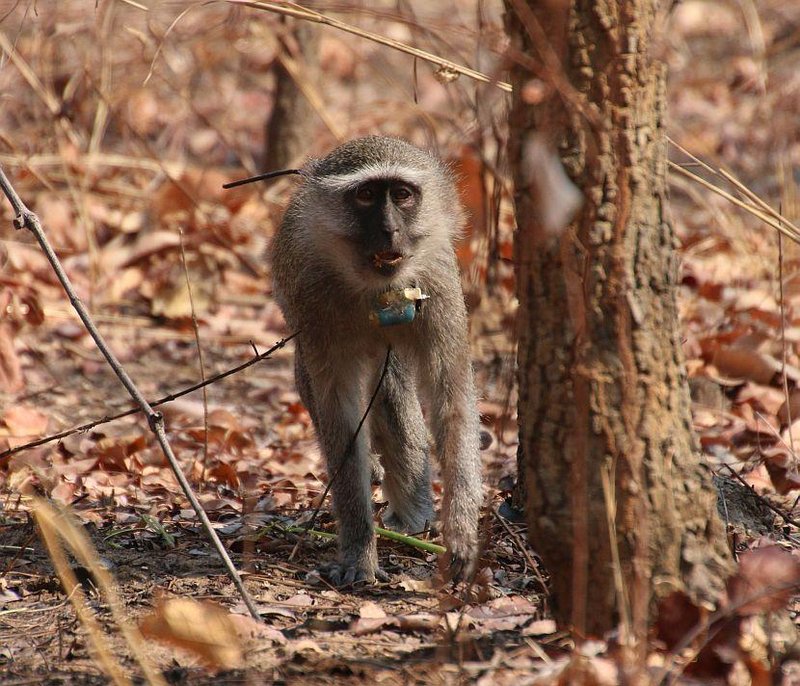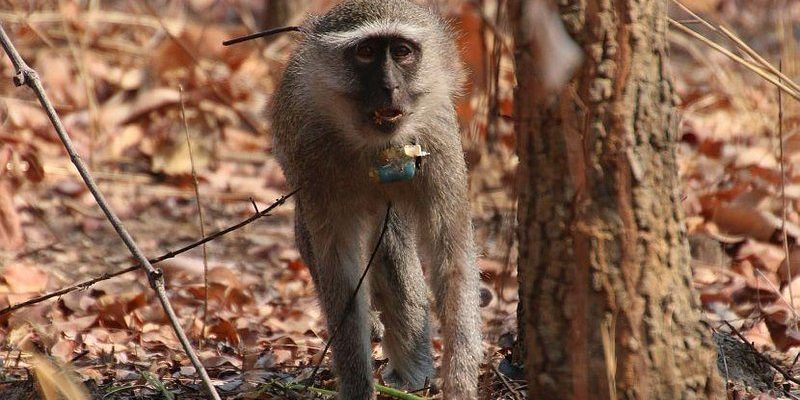
Let’s take a closer look at the status of vervet monkeys and what’s being done to protect them. Think of it as tuning into a nature documentary, only we’re diving deeper into the global conservation efforts that aim to ensure that these playful primates thrive in their natural habitats.
What Are Vervet Monkeys?
Vervet monkeys are medium-sized primates found in various regions of Africa. They’re distinguished by their black faces and bright, expressive eyes, often highlighted by a grayish-blue coat. These monkeys are incredibly social animals, often seen in troops that can have anywhere from a few to several dozen members. They communicate using a variety of sounds and body language, making their interactions quite fascinating to observe.
You might find them foraging for fruits, seeds, and insects. Their adaptability helps them thrive in various environments, from savannas to forests. However, that adaptability is also one of the reasons they’re often in conflict with humans, especially as urban areas expand into their territory.
Current Status of Vervet Monkeys
So, are vervet monkeys endangered? The short answer is no, but it’s complicated. According to the IUCN Red List, vervet monkeys are classified as “Least Concern.” This means they aren’t facing immediate extinction. However, it’s crucial to understand that this status doesn’t mean they’re free from threats.
Their populations are impacted by habitat loss due to agricultural expansion and urban development. For example, as people clear land to grow crops or build homes, vervet monkeys lose their natural habitats. This can lead to increased interactions with humans, often resulting in conflict. So, while they’re not endangered right now, the pressures they face could change that status if we don’t take action.
Threats to Vervet Monkeys
Vervet monkeys encounter several significant threats:
- Habitat Loss: As mentioned, deforestation and land conversion for agriculture take away their homes.
- Human-Wildlife Conflict: When monkeys raid crops, farmers sometimes see them as pests, leading to harm or culling.
- Climate Change: Changing climates can alter their habitats and food supply, making survival more difficult.
Each of these threats contributes to a slower decline in their numbers. While they may seem like a common sight in some areas, the reality is that their populations are vulnerable to these pressures. It’s essential to recognize how our actions affect their survival.
Conservation Efforts for Vervet Monkeys
Fortunately, many organizations and researchers are working hard to protect vervet monkeys and their habitats. Conservation efforts often focus on:
- Habitat Restoration: Initiatives are underway to restore degraded environments, allowing monkeys to reclaim their homes.
- Community Education: Educating farmers about vervet monkeys can lead to more effective coexistence, reducing conflict.
- Research and Monitoring: Ongoing studies help track vervet monkey populations, guiding conservation strategies.
By involving local communities in conservation, these efforts have a better chance of success. When people understand the value of protecting vervet monkeys, they’re more likely to help.
How You Can Help
You might be wondering how you can make a difference for these playful monkeys. Here are a few ways to get involved:
- Support Conservation Organizations: Many groups are dedicated to wildlife conservation. Your donations can help fund projects that protect vervet monkeys and their habitats.
- Spread Awareness: Share information about vervet monkeys and their struggles on social media. Educating others is a crucial step.
- Responsible Wildlife Tourism: If you travel to areas where vervet monkeys live, choose eco-friendly tours that promote conservation.
Every little bit helps. By being informed and active, you can contribute to their future.
In summary, while vervet monkeys aren’t currently classified as endangered, their situation is precarious. Habitat loss, human conflict, and climate change all pose significant challenges. However, ongoing conservation efforts and community involvement present hope for their future. By understanding the issues and taking action, we can help ensure that these charming monkeys continue to thrive in the wild. Together, we can make a difference, one small step at a time.

